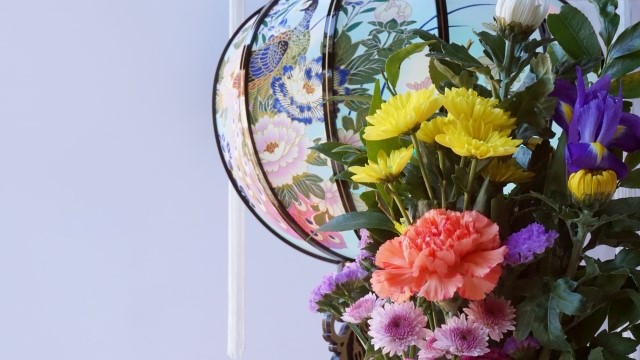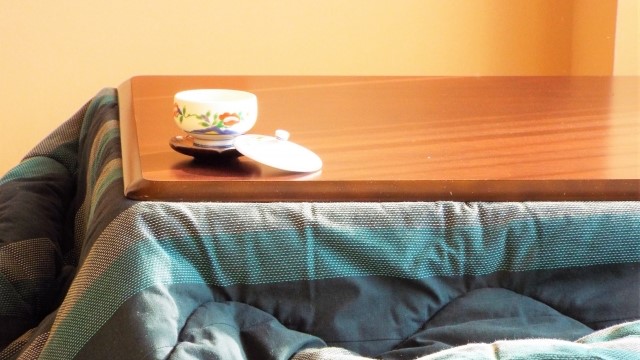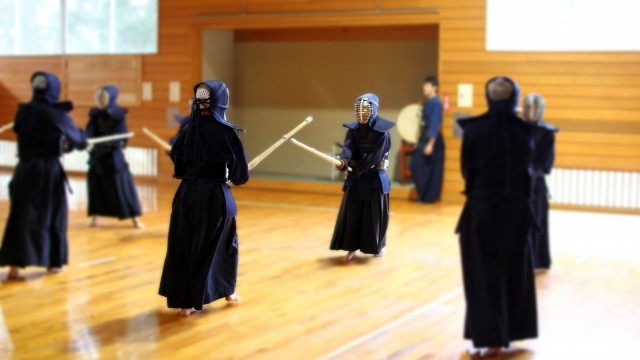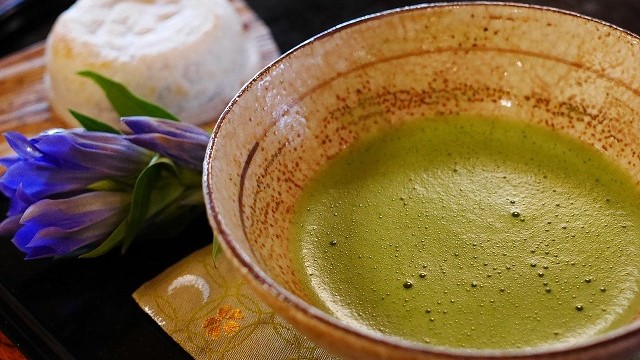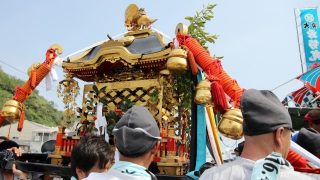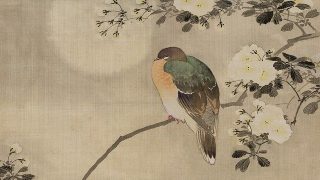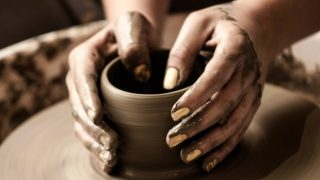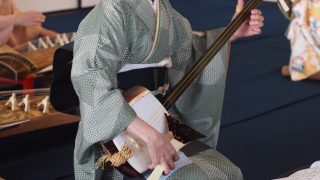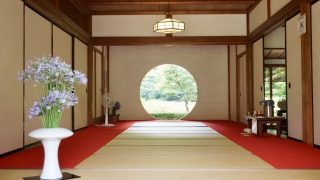About Obon (お盆)
Obon is a Japanese event to welcome and pray tribute to the spirits of ancestors and family members who have passed away.
In Japan, the period around August 15 is called Obon, and it is the Obon holiday.
Even now, it is customary for many Japanese people to go back to their parents’ houses to visit their graves and make offerings during Obon season.
The beginning of Obon
Obon was introduced to Japan in the Asuka period and became a Buddhist ritual at the court in 733. In Japan, it is said to be combined with the Tamamatsuri (a festival to enshrine the spirits of ancestors), which has been held in early autumn for a long time, and it became Obon (a Buddhist ritual to memorialize the spirits of ancestors).
It was a special event held for a long time by aristocrats and monks. Still, in the Edo period (1603-1868), candles and lanterns were mass-produced, and the event became popular among the people in general.
Currently, Obon often takes place from August 13-15.
In general, we visit the grave on the 13th, welcome the spirits of our ancestors with a welcoming fire (Mukae Bon), and send the souls of our ancestors with a sending fire on the 15th (Okuri Bon).
However, until the Edo period (1603-1868), Okuri Bon was held on the 16th, and the Daimonji Okuribi in Kyoto was still held on the night of the 16th.
There are differences from region to region.
In addition, there are various customs for offerings in different regions, and the way of making offerings may also differ depending on the sect.
Events at Obon – Mukae Bon (Welcoming Obon-迎え盆)
Mukae-Bon is a ceremony to welcome the spirits of ancestors into this world. It generally takes place on August 13.
Make an offering to the Buddhist altar and light a welcoming fire. By relying on this welcoming fire, the spirits of our ancestors can come to us without hesitation.
Mukae-bi (Welcoming fire-迎え火)
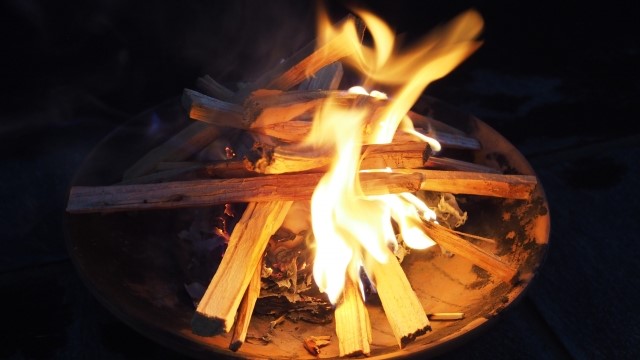
On the evening of the first day of Obon, a linen stalk is burned to welcome the spirits of the ancestors. Some regions use straw, pine, and cherry bark.
Shōryōma (Spirit horse-精霊馬)
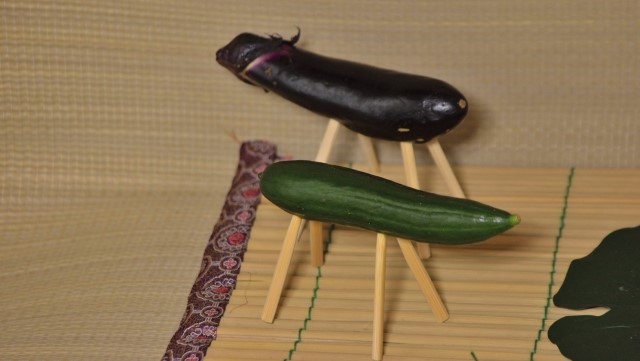
If the grave is close to the house, place lanterns between it to illuminate the road and use it as a beacon. At this time, an offering called a Shōryōma is also prepared.
The Shōryōma consists of a cucumber horse and an eggplant cow. It is believed that they are quick with horses when they come, and when they leave, they are slow with cows.
There is also a theory that horses are for riding and cows are for carrying a load.
Bukka (Buddhist flowers-仏花)
Bukka are flowers that are displayed on the grave and so on. The types of flowers vary from region to region, including bush clover, bellflower, and lotus flower.
Events at Obon – Okuri Bon (送り盆)
On the last day of Obon, we send the spirits of our ancestors back to the original world.
It is said that the spirits of the ancestors will be able to return home without hesitation by lighting a fire called Okuribi (sending-off fire) to light the way back home. This is called “Okuri-bon”.
Okuri-bi (Sending off fire-送り火)
・Daimonji Okuribi
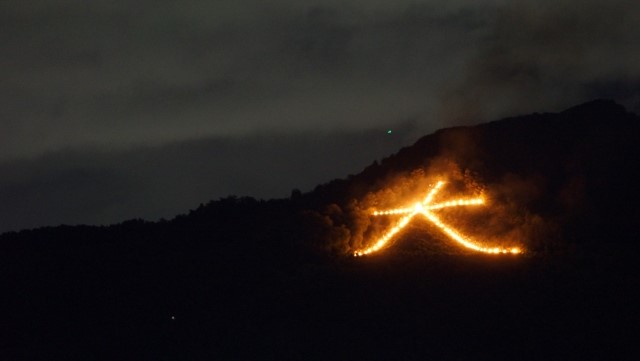
Okuribi is a fire that burns on the night of the last day of Obon to send the spirits of the ancestors. Kyoto’s Daimonji Okuribi is one of them.
Bon Festival dance (BonOdori-盆踊り)
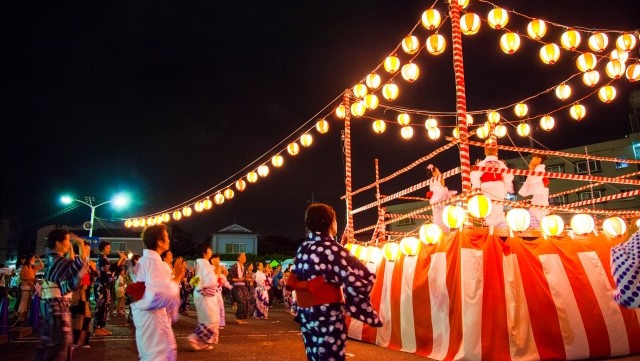
The Bon festival dance was originally held during the Obon as a way of welcoming, comforting, and sending off the spirits who were invited to return to Obon.
Shinto purification ceremony (Seirei Nagashi-精霊流し)
It is an event to send the spirits of our ancestors. Lanterns are floated in rivers and the sea, and offerings are placed on spirit boats.
Current Obon
Obon is an annual event where the spirits of the ancestors return home.
The customs, the timing, and the way of decorating vary from region to region, but it is an event that continues to this day.
In recent years, an increasing number of people in Japan do not know the meaning of Obon.
It’s a good time to reflect on our family history and our ancestors during Obon.


